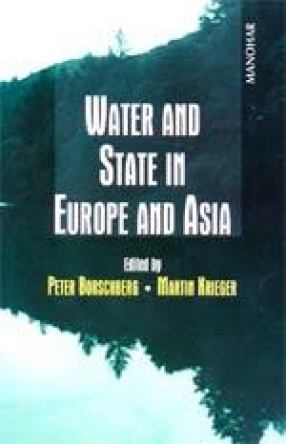Water is indispensable for all life on earth. Since ancient times, the control of fresh-water resources and also the sea facilitated the rise of communal structures and administrative institutions across Europe and Asia. Many states tightened their authority by creaming off agricultural surpluses from irrigated lands. The more effective the irrigational systems, the higher state twentieth century, research on such community-based irrigation was dominated by Karl August Wittfogel’s discourse on ‘Hydraulic Despotism’. Seaborne empires could flourish as a result of their commercial success and naval strength. For such maritime polities indispensable facets of statehood included military power at sea. Successful control of market places and domination of maritime trading routes. The control of waterways and channels was of great strategic importance, such as notably the Danish Sound or the Malacca Straits. Water and State in Europe and Asia brings together established as well as younger experts from Asia and Europe to explore the interdependence of water and state formation on both continents. Hermann Kulke, peter Borschberg, Ranabir Chakravarti, S. Jeyaseela Stephen, martin Krieger and Maitrii Aung-Thwin contribute case-studies on Asia to the volume such as on the Bay of Bengal, North and South India and South-East Asia. Investigating the European perspective, Horst Wernicke, Jens E. Olesen, karel Davids, Allan I. Macinnes, Salvatore Ciriacono and Andreas Klinger exhaustively study the Hanseatic League, the North and Baltic Sea Regions, the Mediterranean as well as waterways within continental Europe. The individual papers contribute to shaping a virtual global image of water being a major stimulus of the emergence of state-power.
European Cemeteries in South India: Seventeenth to Nineteenth Centuries
According to Rudyard ...
$36.00
$40.00






There are no reviews yet.